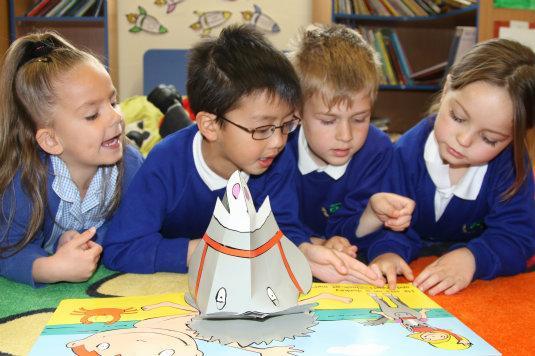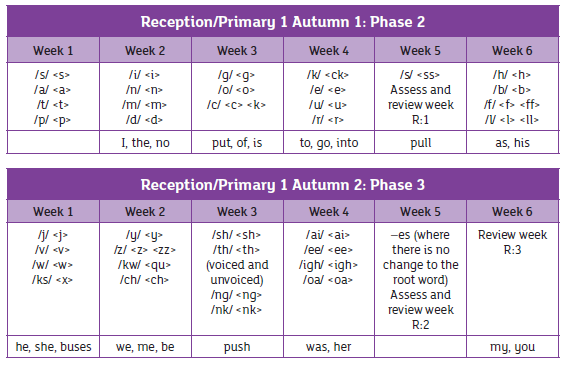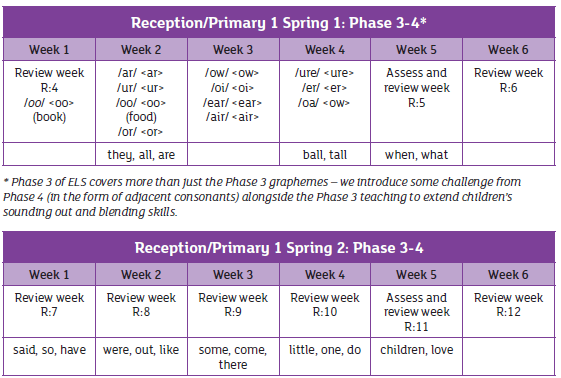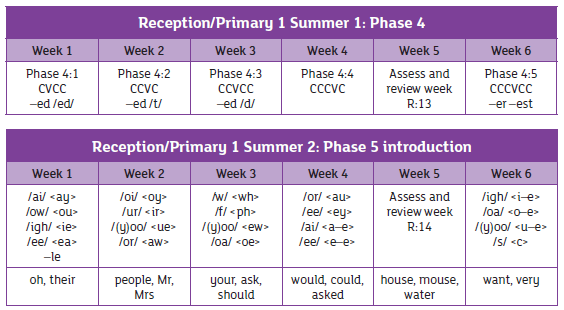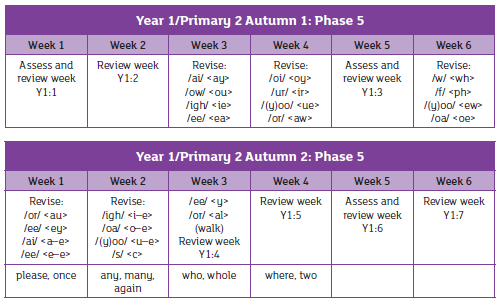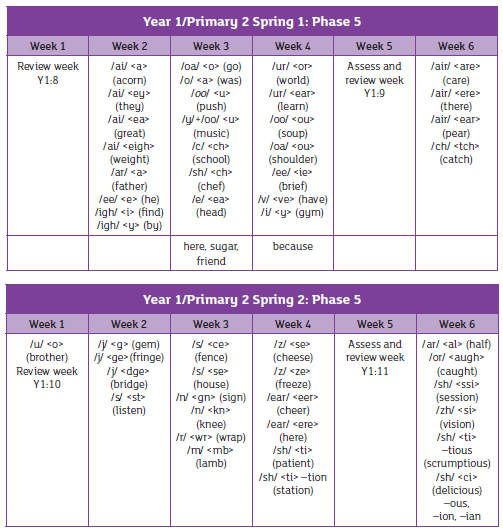How we teach Early Reading
Intent
At Hempsted C. of E. Primary School, we are determined that all children will learn to read fluently.
Rationale
All children learn to read through decoding (phonics). Therefore in Reception and Year 1 children will be taught daily phonics lessons to enable them to learn phonemes (sounds) and to blend these in order to decode words quickly and fluently.
Implementation
Phonics
At Hempsted C of E Primary School we use Essential Letters and Sounds as our systematic synthetic phonics program (SSP).
Reception
ELS whole-class, daily phonics teaching must begin from the first days of Reception. Through the rigorous ELS teaching programme, children will build an immediate understanding of the relationship between the sounds they can hear and say (phonemes) and the written sounds (graphemes).
ELS phonics lessons ensure high-quality first teaching of phonics and give children many opportunities to review and build their sound and grapheme knowledge, word-reading skills and use of rich vocabulary. With a strong start in Reception, all children are given the required skills to read well, quickly.
Year 1
At the beginning of Year 1 children will be assessed on their phoneme recognition from Reception. We will spend the first 2 weeks revising phase 3 phonemes to ensure that children have recalled these from the previous year. We will then teach Phase 5, which involves children learning alternative vowel digraphs, eg ea. We will also teach split digraphs, eg a-e (as in came).
Children will be regularly assessed throughout the year (in Week 5 of each term) and we will give extra support to children who need more practise to learn the phonemes. We will also send home phonemes which your child needs extra support with so that you can practise with them too.
Reading (decoding)
Children will be taught to apply their phonics by decoding, in order to read books.
In Reception, children will only bring home books that match their phonic knowledge. These may be physical books or books allocated through Oxford Owl. This enables children to practise applying the new knowledge they have.
Children will then begin to bring home decodable readers (phonics books). These books will have phonemes (sounds) that your child has already been taught and is secure in. Children will practise the book at school before it comes home. It is important that children reread the book (at least three times) at home because this enables them to become more fluent as they begin to recognise the words without needing to decode and also will ensure they feel successful. We encourage the children to read once to sound all the words and blend them to read, a second time to remember and begin to read a little more confidently and a third time to support their understanding of the content of the book and to talk about it. Their reading books will be changed one a week to reflect the essential need to re-read a book.
Children will continue to read decodable books in Year 1. Again these will contain sounds that your child is already secure with.
Whole class reading (decoding)
In Year 1 we will additionally teach whole class reading sessions 3 times a week. The book used for these sessions will be fully decodable and will have sounds the children are learning that week in school. The teacher will use a range of strategies to support children to decode the words. This will enable children to apply the phonemes they have been taught in phonics, later in the day.
Individual reading (decoding)
Children will read individually at least once a week to an adult in school. Children who need extra support with decoding will also read to either the class teacher 3x a week or to a Teaching Assistant. This will ensure children are further supported in developing decoding skills. It is vital that all children continue to practise their phonics book 3x a week at home as this enables them to become fluent with these phonemes. For this reason, most children will have their phonics book changed once or twice a week.
All of the strategies above will ensure that children learn to decode speedily and fluently.
Assessment
Children need to decode and read words at 95% accuracy in order to be secure with the phonemes they are reading. We assess children’s reading of 100 words in a book and children who get 5 or less errors are secure. Children will then move onto books with a different set of sounds.
Children will be formally assessed in phonics and reading at least once each half term to see if they have progressed and need to move onto books which support a new phase (eg moving from phase 4 to phase 5 books).
Reading for meaning
We teach reading for meaning (comprehension and understanding of the text) separately from phonics and decoding in Reception and Year 1. This is because when children are focussing on decoding texts, they do not have enough space left over in their brains to understand what is happening in the text.
We therefore teach this skill during our daily story time sessions. Children are read aloud to daily and the teacher will model:
- “Think aloud’s” - what they are thinking as they read
- Retrieval – finding answers within the text, eg what was the girl’s name? It says her name is Cinnamon
- Inference – answering questions by digging deeper, eg why was the girl sad? I think the girl is sad because she can’t talk and that would make me feel sad
- Vocabulary – identify new and challenging vocabulary in the text, explain what it means and how I know, for example, frustrated. It says the girl was frustrated that she could not talk. I think this means she felt cross that she couldn’t talk. Model what this emotion would look like facially to support children to remember.
Impact
The impact of our early reading strategy will ensure that children learn to recognise phonemes speedily and use these to decode words fluently. This fluency will ensure that children are able to master the decoding skill and become confident fluent readers.
